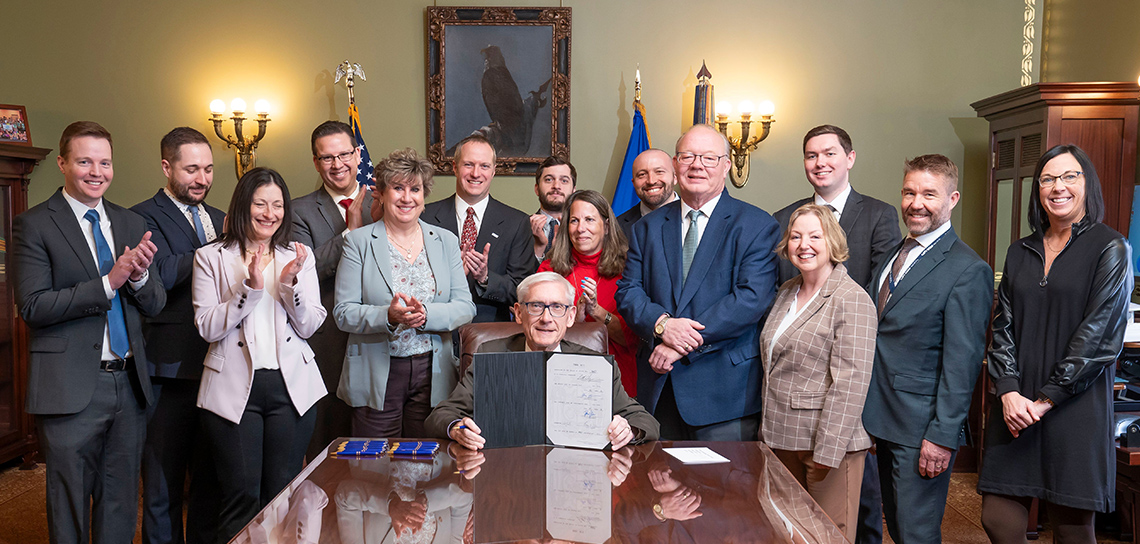In 2013, following the release of WHA’s 100 New Physicians a Year: An Imperative for Wisconsin report, WHA lobbied the governor and lawmakers to provide $5 million over the biennium to create a new graduate medical education (GME) expansion program. Since then, and at WHA’s request, the Legislature has continued to authorize additional funding to meet growing needs for physician training in Wisconsin.
Since its inception over a decade ago, this program has funded the creation of 18 new residency programs across all areas of Wisconsin which produce 60 new physicians each year. To date, the grant program has provided $36 million in state support to new residency programs or existing programs to expand capacity.
 SB 643, signed into law by Gov. Tony Evers on March 22, 2024, will lead to more physicians practicing in Wisconsin, particularly in rural communities. WHA’s Ann Zenk, WHA board member Sue Anderson, and other WHA members attended the signing.
SB 643, signed into law by Gov. Tony Evers on March 22, 2024, will lead to more physicians practicing in Wisconsin, particularly in rural communities. WHA’s Ann Zenk, WHA board member Sue Anderson, and other WHA members attended the signing.
The enactment of Senate Bill 643 as 2023 Wisconsin Act 185, led by Sen. Romaine Quinn (R-Cameron), Reps. Todd Novak (R-Dodgeville) and Pat Snyder (R-Schofield), will build upon WHA’s previous success in expanding the physician workforce in Wisconsin. Wisconsin-raised, Wisconsin-educated, and Wisconsin-trained physicians have an 86% chance of staying in Wisconsin to practice. If they cannot find a residency in Wisconsin, the likelihood they will practice here drops significantly.
“WHA greatly appreciates the leadership from Sen. Quinn and Reps. Novak and Snyder in getting Senate Bill 643 to the Governor’s desk,” said WHA President and CEO Eric Borgerding. “This legislation will lead to more physicians practicing in Wisconsin, particularly in rural communities.”
Act 185 removes a per-hospital cap that has prevented some residency programs from expanding further, requires the Wisconsin Department of Health Service (DHS) to renew funding for previously awarded grant applicants, and allows newly created GME consortia to receive matching grant funds. DHS partnered with WHA in support of Senate Bill 643.
“The governor has continuously shown his support for this important program in every state budget, most recently proposing to increase funding by nearly $2 million,” said Borgerding. “We applaud the governor for signing Senate Bill 643 into law and thank the Department of Health Services for their great partnership in administering this critical program.”
Wisconsin’s state-operated GME grant program is a national model that other states look to replicate as they develop strategies to recruit and retain physicians. To learn more, visit www.wha.org/HealthCareTopics/G/Graduate-Medical-Education.